- Next Event: NINE Headquarters, LUCCA (Italy), 17 - 21 March 2025
- Early Registration Deadline: Jan 25, 2025
NRSHOT - Lecturers
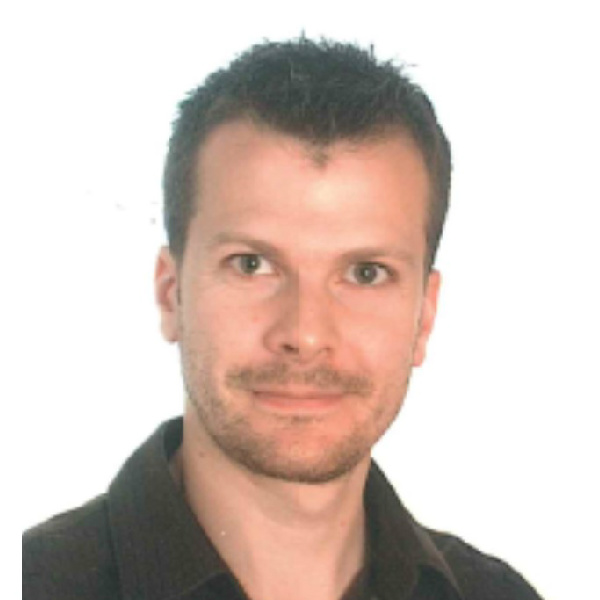
Dr. Agustin Abarca is currently a Senior Research Scholar in the Department of Nuclear Engineering at North Carolina State University (NCSU). He earns his Ph.D. degree in Nuclear Engineering from the Univesitat Politecnica de Valencia (UPV), Valencia, Spain, in 2017. Prior to joining NCSU as Postdoc Scholar in February of 2018, he held a full-time scientist position at UPV. His area of research interest includes thermal-hydraulics, multi-physics reactor simulation, nuclear fuel analysis, uncertainty quantification, and computational technology and programing applied to the coupling and/or the parallelization of simulation codes. In particular, he is focused on the development of multi-physics multi-scale coupling algorithms and interfaces for Best Estimate Nuclear Safety Analysis. Furthermore, he is participating in the development of the subchannel thermal-hydraulic code CTF under the umbrella of the different CASL/VERA collaborative projects. The management of the official CTF GitHub repository is among their priority tasks.
Courses: COBRA-TF-Beginner; TRACE

Courses: COBRA-TF-Beginner
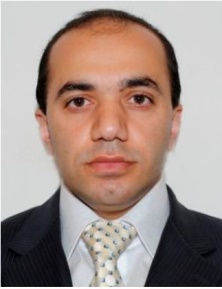 Dr. Suren Bznuni has 18 years of experience in deterministic safety assessment, nuclear reactor safety research and licensing. His field of expertise includes nuclear reactor physics, criticality safety, fuel safety, as well as independent safety assessment of licensee submittals for regulatory body decision making, drafting of national regulations and regulatory guides. He is experienced in PWR and WWER type technologies as well as NUHOMS technology for spent fuel dry storage. Dr. Bznuni holds PhD degree in Reactor Physics and Numerical Methods and Modeling from Joint Institute for Nuclear Research, Dubna, Russia. He was employed by Joint Institute for Nuclear Research as a scientific staff member from 1999-2002. Since 2003, Dr. Bznuni leads the Reactor Physics and Nuclear Fuel Group at NRSC. He is also Associate Professor at Yerevan State University involved in lecturing and nuclear safety research starting 2002. He is a member of the Reactor Physics Group at WWER Regulators Forum and International Technical Working Group (ITWG) on Nuclear Forensics.
Dr. Suren Bznuni has 18 years of experience in deterministic safety assessment, nuclear reactor safety research and licensing. His field of expertise includes nuclear reactor physics, criticality safety, fuel safety, as well as independent safety assessment of licensee submittals for regulatory body decision making, drafting of national regulations and regulatory guides. He is experienced in PWR and WWER type technologies as well as NUHOMS technology for spent fuel dry storage. Dr. Bznuni holds PhD degree in Reactor Physics and Numerical Methods and Modeling from Joint Institute for Nuclear Research, Dubna, Russia. He was employed by Joint Institute for Nuclear Research as a scientific staff member from 1999-2002. Since 2003, Dr. Bznuni leads the Reactor Physics and Nuclear Fuel Group at NRSC. He is also Associate Professor at Yerevan State University involved in lecturing and nuclear safety research starting 2002. He is a member of the Reactor Physics Group at WWER Regulators Forum and International Technical Working Group (ITWG) on Nuclear Forensics.
Courses: PARCS & 3D NK-TH Coupling-Beginner
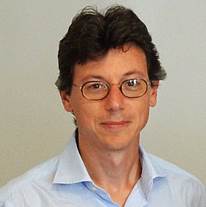 Dr. Marco Cherubini is the Vice-President of NINE and current Head of the Core Behavior Area devoted to prediction and analysis of NPP core by different disciplines viewpoint. Prior to join NINE, he worked over 7 years in the Nuclear Research Group of San Piero a Grado (GRNSPG) being responsible for System Thermal-Hydraulics simulations. He got his PhD Degree in “Nuclear and Industrial Safety” Course of the “Leonardo da Vinci” Doctoral Engineering School in 2008, discussing a thesis dealing with Accident Management in VVER-1000. In the last three years Nuclear fuel behavior became his first priority topic of interest, continuing its involvement in thermal hydraulics activities. He is taking part at different International OECD-NEA and IAEA activities including code benchmarking, noticeably for the nuclear fuel.
Dr. Marco Cherubini is the Vice-President of NINE and current Head of the Core Behavior Area devoted to prediction and analysis of NPP core by different disciplines viewpoint. Prior to join NINE, he worked over 7 years in the Nuclear Research Group of San Piero a Grado (GRNSPG) being responsible for System Thermal-Hydraulics simulations. He got his PhD Degree in “Nuclear and Industrial Safety” Course of the “Leonardo da Vinci” Doctoral Engineering School in 2008, discussing a thesis dealing with Accident Management in VVER-1000. In the last three years Nuclear fuel behavior became his first priority topic of interest, continuing its involvement in thermal hydraulics activities. He is taking part at different International OECD-NEA and IAEA activities including code benchmarking, noticeably for the nuclear fuel.
Courses: RELAP5-Beginner; RELAP5-Intermediate; RELAP5-Advanced
 Domenico De Luca is an engineer at the Nuclear and Industrial Engineering (N.IN.E.) in plant thermal hydraulics area. He graduated from the University of Pisa with a degree in Industrial and Nuclear Safety Engineering in 2008. He got the Master degree in Nuclear and Industrial Safety Engineering at the University of Pisa in 2013, with a thesis related to the analysis of the thermal-hydraulic system response of a PWR during LOCA and core blockage scenarios. During his master degree (2010-2011), he was a research assistant at the Nuclear Research Group of San Piero a Grado (GRNSPG) led by Prof. F. D’Auria at University of Pisa. Then, he spent 8 months (2011-2012) in internship at the Nuclear Engineering Department of Texas A&M University as non-affiliated student technician II, under the supervision of Prof. Y. A. Hassan. In 2011 he started to work in N.IN.E. (since its foundation) in the field of system thermal hydraulics, focusing mainly in safety and licensing analyses of NPP. He is involved also in several international IAEA and OECD/NEA activities.
Domenico De Luca is an engineer at the Nuclear and Industrial Engineering (N.IN.E.) in plant thermal hydraulics area. He graduated from the University of Pisa with a degree in Industrial and Nuclear Safety Engineering in 2008. He got the Master degree in Nuclear and Industrial Safety Engineering at the University of Pisa in 2013, with a thesis related to the analysis of the thermal-hydraulic system response of a PWR during LOCA and core blockage scenarios. During his master degree (2010-2011), he was a research assistant at the Nuclear Research Group of San Piero a Grado (GRNSPG) led by Prof. F. D’Auria at University of Pisa. Then, he spent 8 months (2011-2012) in internship at the Nuclear Engineering Department of Texas A&M University as non-affiliated student technician II, under the supervision of Prof. Y. A. Hassan. In 2011 he started to work in N.IN.E. (since its foundation) in the field of system thermal hydraulics, focusing mainly in safety and licensing analyses of NPP. He is involved also in several international IAEA and OECD/NEA activities.
Courses: RELAP5-Beginner; RELAP5-Intermediate; RELAP5-Advanced
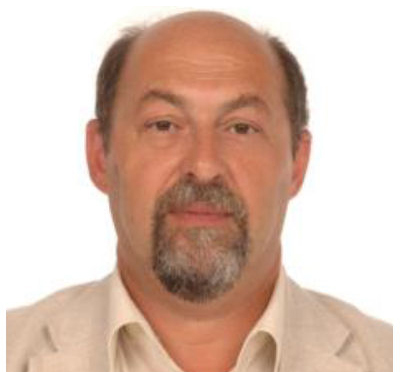 Dr.Artur Lyubarskiy Dr. has over 33 year experience in the Nuclear Field. His field of expertise includes: Safety Assessment of Nuclear Installations (Nuclear Power Plants and Research Reactors); specific expertise in Probabilistic Safety Assessment (PSA) for all events and hazards: internal IEs, internal hazards (fires/floods, etc.), external hazards (natural and human –induced); Integrated Risk-Informed Decision Making Process. He has worked in Russia, Europe and the United States, including over ten years for the Centre for Nuclear and Radiation Safety (SECNRS) of the Nuclear Regulatory Authority of Russia, and 8 years for the International Atomic Energy Agency in Vienna (Austria). He has been lecturing in more than 30 course on Safety Assessment, PSA and IRIDM during his work for the IAEA between 2008-2015. He holds a PhD from the Atomic Energy Technology University in Obninsk (Russia).
Dr.Artur Lyubarskiy Dr. has over 33 year experience in the Nuclear Field. His field of expertise includes: Safety Assessment of Nuclear Installations (Nuclear Power Plants and Research Reactors); specific expertise in Probabilistic Safety Assessment (PSA) for all events and hazards: internal IEs, internal hazards (fires/floods, etc.), external hazards (natural and human –induced); Integrated Risk-Informed Decision Making Process. He has worked in Russia, Europe and the United States, including over ten years for the Centre for Nuclear and Radiation Safety (SECNRS) of the Nuclear Regulatory Authority of Russia, and 8 years for the International Atomic Energy Agency in Vienna (Austria). He has been lecturing in more than 30 course on Safety Assessment, PSA and IRIDM during his work for the IAEA between 2008-2015. He holds a PhD from the Atomic Energy Technology University in Obninsk (Russia).
Courses: PSA-Beginner
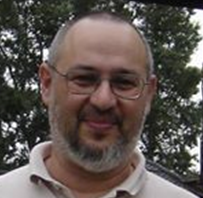
Courses: Radiological Consequence Analysis
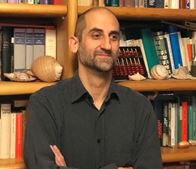
N. Müllner is the representative of Austria in the "Nuclear Safety Standards Committee" of the International Atomic Energy Agency IAEA 2013-2020 and adviser to the Austrian Ministry for Sustainability and Tourism, Nuclear Coordination. He is the author of numerous publications in journals, conference proceedings and specialist publications of the IAEA and OECD / NEA.
Courses: Radiological Consequence Analysis
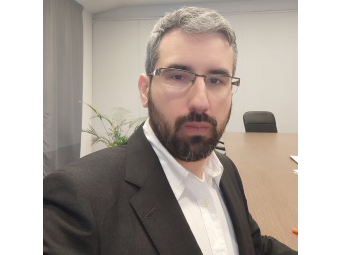 Dr. Hector Lopez is currently an Engineer in the Plant Thermal-Hydraulics and Severe Accident areas at NINE. He obtained his MS in Nuclear Engineering at the University of Manchester on 2011 and later PhD in Nuclear Engineering and Management at the University of Tokyo in 2015 where he studied the effects of two-phase flow in safety systems (in special the effect of two-phase flow in BWR RCIC turbine efficiency). He has been involved in a national project promoted by the Government of Japan to evaluate the accident of Fukushima and asses with its decommissioning. He started working NINE on 2019. His field of expertise includes: development and qualification of evaluation models; analyses and research related to NPP behavior during accident conditions (design bases and design extension conditions) following a BE approach
Dr. Hector Lopez is currently an Engineer in the Plant Thermal-Hydraulics and Severe Accident areas at NINE. He obtained his MS in Nuclear Engineering at the University of Manchester on 2011 and later PhD in Nuclear Engineering and Management at the University of Tokyo in 2015 where he studied the effects of two-phase flow in safety systems (in special the effect of two-phase flow in BWR RCIC turbine efficiency). He has been involved in a national project promoted by the Government of Japan to evaluate the accident of Fukushima and asses with its decommissioning. He started working NINE on 2019. His field of expertise includes: development and qualification of evaluation models; analyses and research related to NPP behavior during accident conditions (design bases and design extension conditions) following a BE approach
Courses: MELCOR-Beginner; MELCOR-Intermediate; RELAP5-Advanced
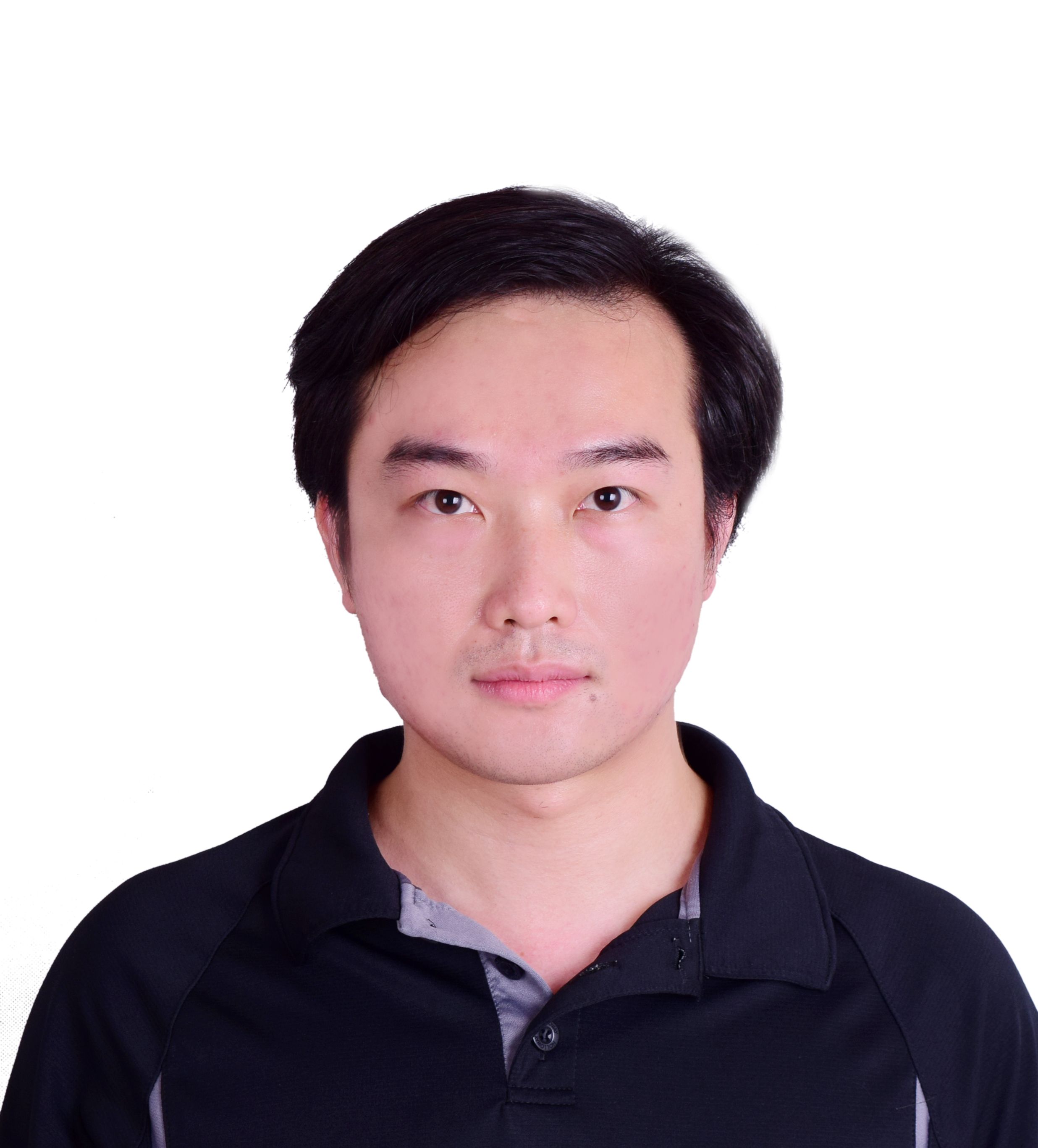 Dr. Kaiyue Zeng is a senior nuclear engineer and currently leading the reactor physics group at NINE. His research interests include multi-scale multi-physics simulation of light water reactor and fast reactor, sensitivity and uncertainty analysis of reactor simulation, and data assimilation using advanced numerical techniques. He received his Ph.D. and master degree in Nuclear Engineering from North Carolina State University in US, and bachelor degree in Nuclear Engineering and Technology in China. He got his master degree with the project of ‘Influence of Contact Angle on Interface Evolution Using Level-Set Method’ in 2016. In the project, he developed a local contact angle control algorithm for a direct numerical simulation code PHASTA. The interface was tracked by the code using level-set method. He got his Ph.D. degree with the thesis of ‘Uncertainty Analysis Framework for the Multi-Physics Light Water Reactor’, where he developed an uncertainty analysis methodology to consistently propagate correlated uncertainties from multi-physics domains, including uncertainties related to neutronics, thermal-hydraulics and fuel performance simulations. The methodology was developed and applied into the international benchmark ‘Uncertainty Analysis in Modelling of Light Water Reactor (LWR-UAM)’ activities. The input uncertainties in different physics domains are correlated with each other and propagated consistently through conventional two-step light water reactor simulations using SCALE, TRACE and PARCS. His fields of study in fast reactor include neutronics and system thermal-hydraulic simulations of sodium cooled fast reactors, and the associated sensitivity and uncertainty analysis using perturbation theory based and stochastic sampling based methodologies. The developed methodologies were applied into the international benchmark ‘Uncertainty Analysis in Modelling of Sodium-cooled Fast Reactor (SFR-UAM)’ activities. His expertise also includes reactor core design optimization using genetic algorithm, and the developed methodology was used to obtained optimized fuel enrichment in the Advanced Burner Test Reactor (ABTR). He joined NINE since December 2020 as a senior nuclear engineer, and his duties include developing adjoint sensitivity analysis methodology for reactor multi-physics simulation and data assimilation, as well as providing related consultant and training services to NINE’s customers.
Dr. Kaiyue Zeng is a senior nuclear engineer and currently leading the reactor physics group at NINE. His research interests include multi-scale multi-physics simulation of light water reactor and fast reactor, sensitivity and uncertainty analysis of reactor simulation, and data assimilation using advanced numerical techniques. He received his Ph.D. and master degree in Nuclear Engineering from North Carolina State University in US, and bachelor degree in Nuclear Engineering and Technology in China. He got his master degree with the project of ‘Influence of Contact Angle on Interface Evolution Using Level-Set Method’ in 2016. In the project, he developed a local contact angle control algorithm for a direct numerical simulation code PHASTA. The interface was tracked by the code using level-set method. He got his Ph.D. degree with the thesis of ‘Uncertainty Analysis Framework for the Multi-Physics Light Water Reactor’, where he developed an uncertainty analysis methodology to consistently propagate correlated uncertainties from multi-physics domains, including uncertainties related to neutronics, thermal-hydraulics and fuel performance simulations. The methodology was developed and applied into the international benchmark ‘Uncertainty Analysis in Modelling of Light Water Reactor (LWR-UAM)’ activities. The input uncertainties in different physics domains are correlated with each other and propagated consistently through conventional two-step light water reactor simulations using SCALE, TRACE and PARCS. His fields of study in fast reactor include neutronics and system thermal-hydraulic simulations of sodium cooled fast reactors, and the associated sensitivity and uncertainty analysis using perturbation theory based and stochastic sampling based methodologies. The developed methodologies were applied into the international benchmark ‘Uncertainty Analysis in Modelling of Sodium-cooled Fast Reactor (SFR-UAM)’ activities. His expertise also includes reactor core design optimization using genetic algorithm, and the developed methodology was used to obtained optimized fuel enrichment in the Advanced Burner Test Reactor (ABTR). He joined NINE since December 2020 as a senior nuclear engineer, and his duties include developing adjoint sensitivity analysis methodology for reactor multi-physics simulation and data assimilation, as well as providing related consultant and training services to NINE’s customers.
Courses: Multi-Physics Multi-Scale Modeling and Simulation (M&S) and Applications

Dr. Alessandro Petruzzi is President of the Board of Directors of Nuclear and INdustrial Engineering (NINE) since 2011. He received Ph.D. in Nuclear and Industrial Safety from University of Pisa where he worked on development of Uncertainty Methods for system thermal-hydraulics codes and application of BEPU methodology to Safety Analysis in Licensing framework. From 2007 to 2013 he acted as deputy manager of GRNSPG (University of Pisa) working on the preparation of Chapter 15 of FSAR of Atucha-2 NPP in Argentina. His current research concentrates on thermal-hydraulics, multi-physics methods for reactor safety analysis, forward and inverse methods for uncertainty quantification and he is member of several NEA working group both at NSC and CSNI. In 2013 he was the main organizer of NURETH-15 in Pisa.
Courses: RELAP5-Beginner; RELAP5-Intermediate; RELAP5-Advanced



